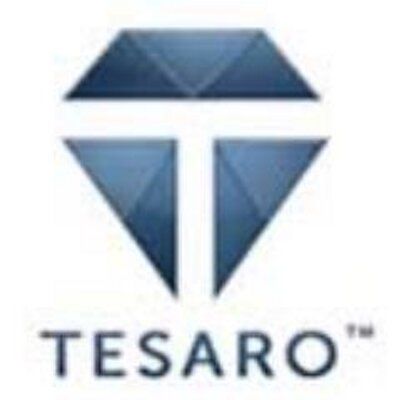Request Demo
Last update 08 May 2025
GlaxoSmithKline Research & Development Ltd.
Last update 08 May 2025
Overview
Tags
Neoplasms
Immune System Diseases
Urogenital Diseases
Small molecule drug
Monoclonal antibody
Disease domain score
A glimpse into the focused therapeutic areas
No Data
Technology Platform
Most used technologies in drug development
No Data
Targets
Most frequently developed targets
No Data
| Top 5 Drug Type | Count |
|---|---|
| Small molecule drug | 4 |
| Monoclonal antibody | 2 |
Related
11
Drugs associated with GlaxoSmithKline Research & Development Ltd.Target |
Mechanism PD-1 inhibitors |
Active Org. |
Originator Org. |
Active Indication |
Inactive Indication |
Drug Highest PhaseApproved |
First Approval Ctry. / Loc. European Union [+3] |
First Approval Date21 Apr 2021 |
Target |
Mechanism TIGIT inhibitors |
Active Org. |
Originator Org. |
Active Indication |
Inactive Indication |
Drug Highest PhasePhase 3 |
First Approval Ctry. / Loc.- |
First Approval Date- |
Target |
Mechanism IL-18 inhibitors |
Originator Org. |
Active Indication |
Inactive Indication |
Drug Highest PhasePhase 2 |
First Approval Ctry. / Loc.- |
First Approval Date- |
383
Clinical Trials associated with GlaxoSmithKline Research & Development Ltd.CTRI/2025/03/083590
A prospective, multi-centre study (B-Sure) to evaluate long-term durability of treatment response in chronic hepatitis B participants with and without nucleos(t)ide therapy who have participated in a previous bepirovirsen treatment study - B-Sure
Start Date08 Apr 2025 |
Sponsor / Collaborator |
CTIS2024-513441-36-00
A Phase 2, open label, randomized study of neoadjuvant dostarlimab plus CAPEOX versus CAPEOX in participants with previously untreated T4N0 or Stage III MMRp/ MSS colon cancer - 222892
Start Date17 Feb 2025 |
Sponsor / Collaborator |
CTIS2024-511596-15-00
A Dose-Finding, Double-Blind, Placebo-Controlled Phase 2 Study to Evaluate the Efficacy and Safety of GSK4532990 for Steatohepatitis in Adults with Alcohol-related Liver Disease (ALD) - 222291
Start Date26 Dec 2024 |
Sponsor / Collaborator |
100 Clinical Results associated with GlaxoSmithKline Research & Development Ltd.
Login to view more data
0 Patents (Medical) associated with GlaxoSmithKline Research & Development Ltd.
Login to view more data
184
Literatures (Medical) associated with GlaxoSmithKline Research & Development Ltd.13 Feb 2025·Blood
Acute resistance to BET inhibitors remodels compensatory transcriptional programs via p300 coactivation
Article
Author: Guezguez, Borhane ; Agrawal-Singh, Shuchi ; Eleftheriadou, Ioanna ; Shah, Viral ; Yun, Haiyang ; Gallipoli, Paolo ; Tarkar, Aarti ; Schubert, Benedict ; Lugo, Dave ; Gallego-Crespo, Aaron ; Sasca, Daniel ; Prinjha, Rab K. ; Dhar, Arindam ; Osaki, Hikari ; Giotopoulos, George ; Huntly, Brian J. P. ; Horton, Sarah J. ; Kindler, Thomas ; Dawson, Mark A. ; Yeh, Paul ; Theobald, Matthias ; Haehnel, Patricia S. ; Behrendt, Malte A. ; Kühn, Michael W. M. ; Barbash, Olena ; Meduri, Eshwar ; Basheer, Faisal ; Meyerhöfer, Markus ; Saura-Pañella, Maria
01 Feb 2025·BMJ Open
Tebipenem pivoxil as an alternative to ceftriaxone for clinically non-responding children with shigellosis: a randomised non-inferiority trial protocol
Article
Author: Ahmed, Dilruba ; Nuzhat, Sharika ; Arnold, Samuel L ; Islam, Md Ridwan ; Bashar, Syed Jayedul ; Ahmed, Tahmeed ; Qadri, Firdausi ; Khanam, Farhana ; Das, Subhasish ; Chisti, Md Jobayer ; Newlands, Amy ; Addo, Juliet ; Pavlinac, Patricia B ; Alvaro, Elena Fernandez ; Gibson, Rachel
01 Jul 2024·The Lancet
Clinical effectiveness and safety of time-lapse imaging systems for embryo incubation and selection in in-vitro fertilisation treatment (TILT): a multicentre, three-parallel-group, double-blind, randomised controlled trial
Article
Author: Heighway, James ; Pardo, M Carmen ; Chung, Jacqueline Pui Wah ; Gonzalez Carreras, Francisco ; Patel, Deepali ; Bhide, Priya ; Wright, Annie ; Chan, David Y L ; Perez, Teresa ; Collins, Bonnie ; Lanz, Doris ; Choudhury, Yasmin ; Cheong, Ying ; Khan, Khalid S ; Dodds, Julie ; Alqawasmeh, Odai ; Baxter, Dominic ; Barry, Eleanor ; Cong, Luping ; Rattos, Annabel ; Doidge, Sally ; Thangaratinam, Shakila
4
News (Medical) associated with GlaxoSmithKline Research & Development Ltd.02 Jul 2021
When GlaxoSmithKline R&D chief Hal Barron outlined his vision for the new GSK, he touted repeatedly how, digging through functional genomic datasets from partners like 23andMe and the UK Biobank, his team could see things that others can’t and propose or validate hypotheses in a whole new way.
And that can sometimes take them in a surprising direction.
GSK is dropping a whopping $700 million upfront to kickstart an alliance with Alector — the San Francisco biotech helmed by Genentech vet Arnon Rosenthal — that could spawn another $1.5 billion in milestones if the two antibodies at its center clear all tests in a range of notorious neurodegenerative diseases including Alzheimer’s, Parkinson’s, amyotrophic lateral sclerosis and frontotemporal dementia.
Antibody
30 Jun 2021
When GlaxoSmithKline R&D chief Hal Barron outlined his vision for the new GSK, he touted repeatedly how, digging through functional genomic datasets from partners like 23andMe and the UK Biobank, his team could see things that others can’t and propose or validate hypotheses in a whole new way.
And that can sometimes take them in a surprising direction.
GSK is dropping a whopping $700 million upfront to kickstart an alliance with Alector — the San Francisco biotech helmed by Genentech vet Arnon Rosenthal — that could spawn another $1.5 billion in milestones if the two antibodies at its center clear all tests in a range of notorious neurodegenerative diseases including Alzheimer’s, Parkinson’s, amyotrophic lateral sclerosis and frontotemporal dementia.
Antibody
07 Jun 2021
When GlaxoSmithKline R&D chief Hal Barron outlined his vision for the new GSK, he touted repeatedly how, digging through functional genomic datasets from partners like 23andMe and the UK Biobank, his team could see things that others can’t and propose or validate hypotheses in a whole new way.
And that can sometimes take them in a surprising direction.
GSK is dropping a whopping $700 million upfront to kickstart an alliance with Alector — the San Francisco biotech helmed by Genentech vet Arnon Rosenthal — that could spawn another $1.5 billion in milestones if the two antibodies at its center clear all tests in a range of notorious neurodegenerative diseases including Alzheimer’s, Parkinson’s, amyotrophic lateral sclerosis and frontotemporal dementia.
Antibody
100 Deals associated with GlaxoSmithKline Research & Development Ltd.
Login to view more data
100 Translational Medicine associated with GlaxoSmithKline Research & Development Ltd.
Login to view more data
Corporation Tree
Boost your research with our corporation tree data.
login
or

Pipeline
Pipeline Snapshot as of 21 Feb 2026
The statistics for drugs in the Pipeline is the current organization and its subsidiaries are counted as organizations,Early Phase 1 is incorporated into Phase 1, Phase 1/2 is incorporated into phase 2, and phase 2/3 is incorporated into phase 3
Discovery
2
2
Preclinical
IND Approval
1
2
Phase 3 Clinical
Other
4
Login to view more data
Current Projects
| Drug(Targets) | Indications | Global Highest Phase |
|---|---|---|
Belrestotug ( TIGIT ) | PD-L1 positive Non-Small Cell Lung Cancer More | Phase 3 |
Dostarlimab-gxly ( PD-1 ) | PD-L1 positive Non-Small Cell Lung Cancer More | Phase 3 |
Aletekitug ( IL-18 ) | Dermatitis, Atopic More | IND Approval |
GSKJ-4 ( KDM6A x KDM6B ) | Autoimmune Diseases More | Preclinical |
HIV integrase inhibitors(GlaxoSmithKline) ( HIV integrase ) | HIV Infections More | Preclinical |
Login to view more data
Deal
Boost your decision using our deal data.
login
or

Translational Medicine
Boost your research with our translational medicine data.
login
or

Profit
Explore the financial positions of over 360K organizations with Synapse.
login
or

Grant & Funding(NIH)
Access more than 2 million grant and funding information to elevate your research journey.
login
or

Investment
Gain insights on the latest company investments from start-ups to established corporations.
login
or

Financing
Unearth financing trends to validate and advance investment opportunities.
login
or

AI Agents Built for Biopharma Breakthroughs
Accelerate discovery. Empower decisions. Transform outcomes.
Get started for free today!
Accelerate Strategic R&D decision making with Synapse, PatSnap’s AI-powered Connected Innovation Intelligence Platform Built for Life Sciences Professionals.
Start your data trial now!
Synapse data is also accessible to external entities via APIs or data packages. Empower better decisions with the latest in pharmaceutical intelligence.
Bio
Bio Sequences Search & Analysis
Sign up for free
Chemical
Chemical Structures Search & Analysis
Sign up for free


